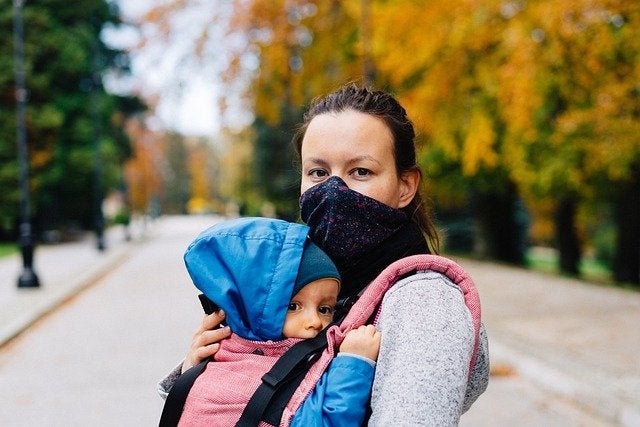As Mother’s Day approaches, USC experts describe challenges to mothers at home and in the workplace due to the COVID-19 pandemic and other global health challenges.
Pandemic and child loss are among challenges for mothers around the world
Contact: Jenesse Miller 213-810-8554 or jenessem@usc.edu
Pregnancy, childbirth and isolation during the pandemic
 Associate professor of psychology Darby Saxbe studies couples expecting a baby, from pregnancy to postpartum, and measures their hormonal and neural responses to parenthood. When the COVID-19 pandemic forced her lab to suspend the research, she pivoted to using an online survey. The responses revealed higher self-reported depression, anxiety and stress, and less social support compared to the pre-pandemic data.
Associate professor of psychology Darby Saxbe studies couples expecting a baby, from pregnancy to postpartum, and measures their hormonal and neural responses to parenthood. When the COVID-19 pandemic forced her lab to suspend the research, she pivoted to using an online survey. The responses revealed higher self-reported depression, anxiety and stress, and less social support compared to the pre-pandemic data.
“What’s different about COVID is at the same time this huge pandemic was threatening our lives, we were also told that we couldn’t physically interact with each other,” said Saxbe, who founded the Center for the Changing Family at the USC Dornsife College of Letters, Arts and Sciences. “Pregnancy is a time where there’s a heightened need for connection and support, so one of the things I think we’ll find is the pandemic will take a different toll than prior disasters.”
Read a Q & A with Saxbe on the new center and her recent survey.
Contact: dsaxbe@usc.edu
Investigating the bereavement burden of losing a child
 Associate professor of sociology and spatial sciences Emily Smith-Greenaway recently co-authored a study that found mothers in select African countries are more than 100 times more likely to have had a child die than mothers in high-income countries. The study builds on her earlier research on the high prevalence of African mothers who have ever experienced a child’s death.
Associate professor of sociology and spatial sciences Emily Smith-Greenaway recently co-authored a study that found mothers in select African countries are more than 100 times more likely to have had a child die than mothers in high-income countries. The study builds on her earlier research on the high prevalence of African mothers who have ever experienced a child’s death.
“We hope that this work will emphasize that further efforts to lower child deaths will not only improve the quality and length of life for children across the globe, but will also fundamentally improve the lives of parents,” she said.
Contact: smithgre@usc.edu
Research shines light on “invisible” Latina immigrant mothers
Abigail Palmer Molina is a doctoral student at the USC Suzanne Dworak-Peck School of Social Work who has focused her dissertation on the experiences of mothers — mostly Latina immigrants — participating in a maternal depression program in South Los Angeles. “There’s a lack of research that focuses on these invisible communities,” she said.
Then the COVID-19 pandemic hit, and Molina explored the impact of the pandemic on their economic well-being, maternal mental health and family functioning. She recently published her findings.
“It really portrays how these different stressors are compounding for undocumented families, and for documented mothers that have undocumented members of their family.”
Contact: acpalmer@usc.edu
Economic fallout of pandemic hit working mothers hard

USC researchers MarÃa Prados and Gema Zamarro used data from the USC Understanding Coronavirus in America tracking survey to understand gender differences within households on the impact of the COVID-19 crisis.
“Women carry an increasingly heavier load than men when it comes to providing child care and educational support for their children during this pandemic, even while working,” said Prados, a research scientist at the Center for Economic and Social Research at the USC Dornsife College of Letters, Arts and Sciences. “Women have lost jobs at a higher rate than men during the pandemic and almost twice as many remain without a job, compared to men.”
Contact: prados@usc.edu
Photos via Pixabay and Pexels




